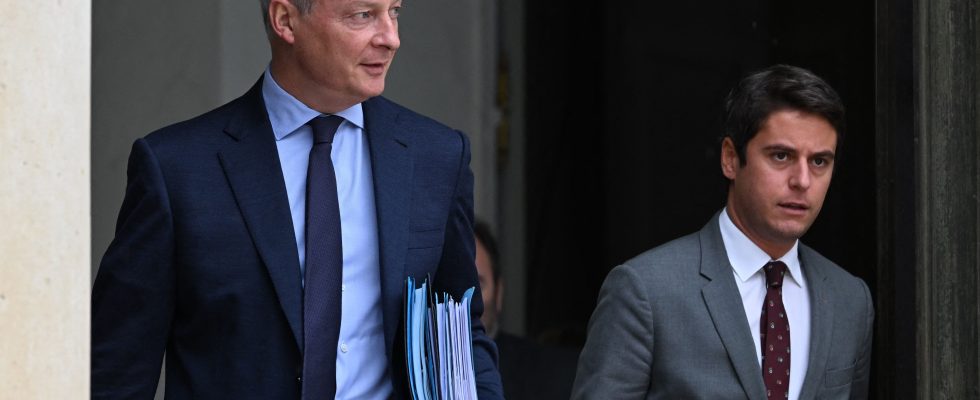We have to go back to the turbulent times of the sovereign debt crisis at the start of the 2010s for the decision of a rating agency to be so awaited. After Fitch, a few weeks ago, Standard & Poor’s will publish its famous note on the French public debt this Friday. Unfortunately, when it comes to public finances, semantics count almost more than actions. For ages, there has been a word that successive finance ministers no longer dare to pronounce, that of “rigor”. Even on the right of the political spectrum, the memory of the 1983 shift – the ultimate betrayal for much of the left – is radioactive. We prefer to speak of “control” of expenses, of “good management”, even of “turn of the screw”. Strictly never. However, even today, the real is essential.
The era of “whatever it costs” is over, Bruno Le Maire keeps reminding us. It must be said that he has massive summer: 240 billion euros in additional spending since the Covid, i.e. almost 10% of GDP. According to the roadmap transmitted by Bercy to Brussels, France has planned to reduce the ratio of public expenditure to GDP from 57% at the end of 2022 to 54% in 2027, knowing that the average in Europe is by 52%. The executive has a strategy to get there: scrutinize all public spending. In fact, it is a great classic.
Economic history buffs will remember that, in 1946, a “central committee to investigate the cost and performance of public services” was created. In 1968, a committee for the “rationalization of budgetary choices” was created. In 1989, the “Rocard circular” instituted a “duty to evaluate public policies”.
Time for budget choices
Then came the time for acronyms. In 2007, it was the famous RGPP, Nicolas Sarkozy’s “general review of public policies”. In 2012, François Hollande imagined the MAP, the “modernization of public action”. In 2017, Emmanuel Macron launched CAP 2022, the “public action committee 2022”, which already aims to reduce public spending by 3 points of GDP by the end of the five-year term. A cascade of Théodule committees, all of which failed.
Through cowardice, short-sightedness, or preference for the short term, the weight of public spending has continued to increase while the judgment of the French on the quality of schools, hospitals, or courts has deteriorated. Budgetary choices, however, will have to be made. The debt burden increases with the rise in interest rates. As for the imperative and inevitable ecological transition, it requires billions of euros of public investment. What if this time we really did it? Chick!
